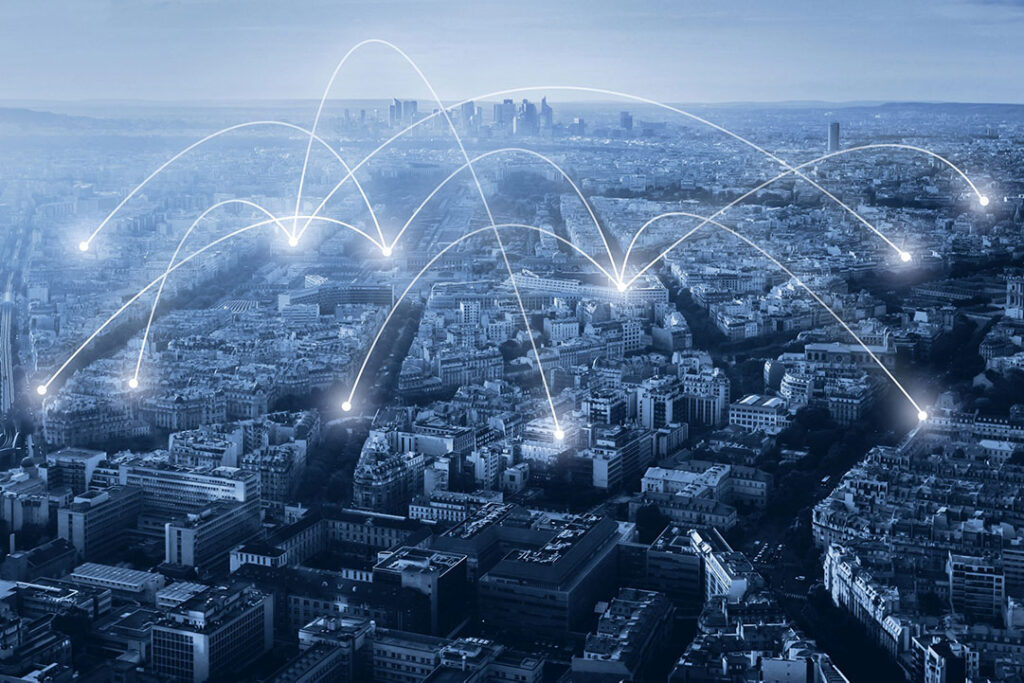Advancements in Solar Technology

In recent years, the security and life safety industry has experienced significant transformation through the adoption of solar capabilities. This integration has brought about numerous benefits, from energy efficiency to enhanced reliability. As the world moves toward a more sustainable future, understanding these advancements is crucial for businesses and consumers alike. This blog post explores the latest developments in solar technology and how they are revolutionizing the security and life safety industry.
The Rise of Solar Technology in Security
Evolution of Solar Panels
Solar panels have come a long way from their inception. Modern photovoltaic cells are more efficient, durable, and cost-effective. Innovations in materials, such as perovskite and bifacial solar cells, have increased energy conversion rates, making solar panels a more viable option for powering security systems. These advancements have led to a surge in the deployment of solar-powered security cameras, alarms, and lighting systems.
Benefits of Solar-Powered Security Systems
- Energy Independence: Solar-powered security systems reduce reliance on the grid, ensuring consistent performance even during power outages. This is particularly important for critical infrastructure and remote locations where power stability is crucial.
- Cost Savings: By harnessing solar energy, businesses and homeowners can significantly reduce their electricity bills. The initial investment in solar panels is offset by the long-term savings on energy costs.
- Environmentally Friendly: Solar power is a clean and renewable energy source. Using solar-powered security systems reduces the carbon footprint, aligning with global efforts to combat climate change.
- Scalability and Flexibility: Solar-powered systems can be easily scaled up or down, depending on the security needs. They are also flexible in installation, as they do not require extensive wiring and can be set up in various locations.
Technological Advancements in Solar Security Systems
Improved Energy Storage Solutions
One of the challenges with solar-powered systems is energy storage. However, advancements in battery technology, such as lithium-ion and solid-state batteries, have significantly improved the storage capabilities of solar systems. These batteries offer higher energy densities, longer lifespans, and faster charging times, ensuring that security systems have a reliable power source even during cloudy days or at night.
Integration with Smart Technology
The integration of solar-powered security systems with smart technology has enhanced their functionality and user experience. Features such as remote monitoring, real-time alerts, and AI-powered analytics are now commonplace. These capabilities allow for proactive security measures, such as automatic threat detection and response, providing a higher level of safety and security.
Enhanced Durability and Weather Resistance
Advancements in materials and design have made solar panels more durable and weather-resistant. Anti-reflective coatings, tempered glass, and robust frames ensure that solar panels can withstand harsh weather conditions, reducing maintenance costs and increasing the longevity of the systems.
Solar Capabilities in Life Safety Systems
Solar-Powered Emergency Lighting
Emergency lighting is a critical component of life safety systems. Solar-powered emergency lights ensure that buildings remain illuminated during power outages, aiding in safe evacuations and emergency responses. These systems are particularly beneficial in areas prone to natural disasters, where power outages are common.
Solar-Enabled Fire Detection Systems
Solar-powered fire detection systems offer a reliable alternative to traditional systems, particularly in remote or off-grid locations. These systems can operate independently of the grid, ensuring uninterrupted functionality even during power failures.
Solar-Powered Medical Alert Systems
For individuals requiring continuous medical monitoring, solar-powered medical alert systems provide an added layer of safety. These systems can operate without interruption, ensuring that help is always available when needed.
Challenges and Considerations
Initial Costs and Installation
While solar technology has become more affordable, the initial costs of solar-powered security and life safety systems can be a barrier for some. Additionally, the installation process requires careful planning and expertise to ensure optimal performance.
Regulatory and Compliance Issues
The integration of solar technology into security and life safety systems must comply with various regulations and standards. Ensuring compliance can be complex, requiring careful consideration and adherence to guidelines.
Dependence on Weather Conditions
Despite advancements in energy storage, solar-powered systems still rely on sunlight to generate power. In areas with limited sunlight, system performance can be affected, necessitating backup power solutions.
Future Trends and Innovations
Integration with Renewable Energy Grids
As the world moves toward more sustainable energy sources, solar-powered security and life safety systems are expected to integrate seamlessly with renewable energy grids. This integration will provide a more stable and efficient power supply, further enhancing the reliability of these systems.
Development of Smart Solar Panels
Smart solar panels, equipped with sensors and connectivity features, are on the horizon. These panels will be able to monitor their performance, detect issues, and communicate with other smart devices, offering a more integrated and efficient approach to security and life safety.
Advancements in AI and Machine Learning
The incorporation of AI and machine learning in solar-powered security systems will enhance their capabilities. Predictive analytics, anomaly detection, and automated responses are just a few of the features that will be possible, providing a higher level of security and safety.
Conclusion
The advancements in solar capabilities have significantly impacted the security and life safety industry, offering numerous benefits and opportunities for innovation. As technology continues to evolve, solar-powered systems are expected to become even more efficient, reliable, and integrated, playing a crucial role in the future of security and life safety. Businesses and consumers alike must stay informed and consider adopting these advancements to enhance their security and safety measures while contributing to a more sustainable future. Contact us today for a complimentary consultation!
- The Role of Continuous Monitoring and Analysis in Intrusion Detection - September 6, 2024
- Understanding Crucial Terms and Technologies in Fire Alarm Systems - August 30, 2024
- The Anatomy of a Fire Alarm System: Essential Components for Complete Protection - August 23, 2024
